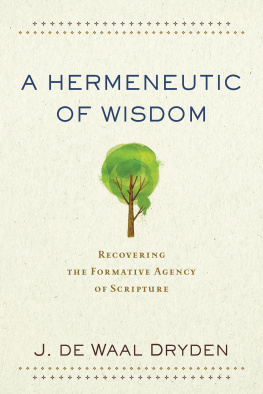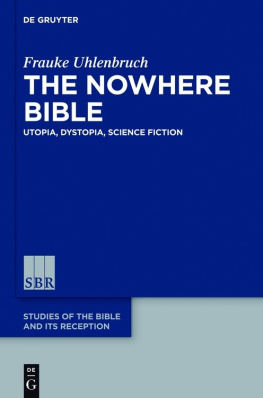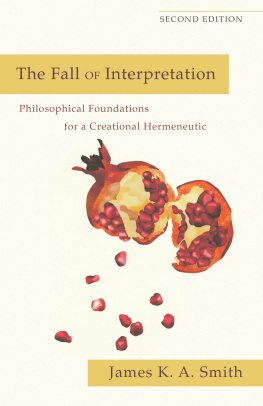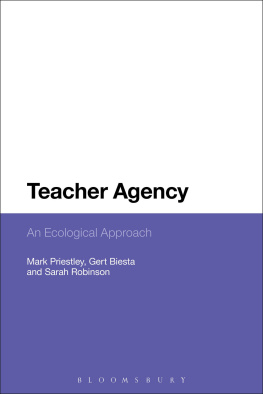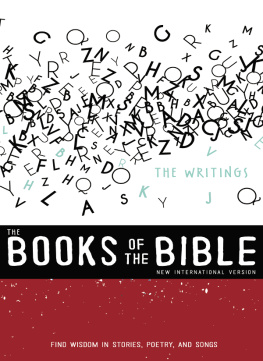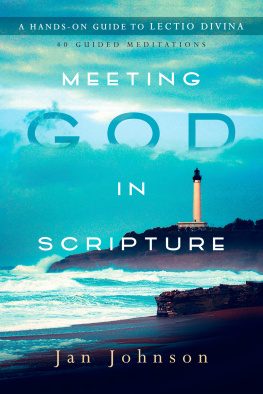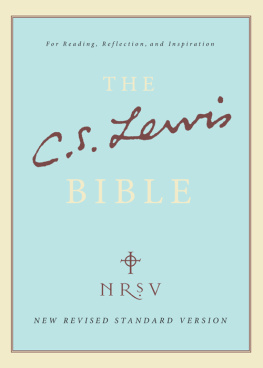1. Knowing and Reading
2. Theology and Ethics
3. Law and Gospel
4. Reading Gospels for Wisdom: Theory
5. Reading Gospels for Wisdom: Practice
6. Reading Epistles for Wisdom: Theory
7. Reading Epistles for Wisdom: Practice
Acknowledgments
This book has been stirring around in my head since my doctoral studies, and in some ways it is my attempt to take my work there on 1 Peter and expand it into a methodology that covers the rest of the NT. In those dozen or so years I have had numerous conversation partners that have helped me formulate into words what started as a set of tacit exegetical instincts. The first discernible stage of development was a seminar I did on biblical hermeneutics with some of my students at the English LAbri. They were my first guinea pigs and we learned a lot together, especially that the Bible can be wild, scary, and beautiful. So, my first debt of thanks belongs to them. They convinced me to continue on my methodological and pedagogical sojourn.
Much of the material substance of this book was developed subsequently in several iterations of a class I taught at Covenant College on NT Ethics. These were my real guinea pigs. Again, we all learned much together, and my small attempt to repay the immeasurable debt I owe to these students can be found in the dedication to this volume. Together we learned how the NT functions as wisdom to shape our lives, and we did our best to open ourselves to that process. It was a deep pleasure and genuine privilege to see students embrace the Bible as a source of wisdom for shaping their humanity and agency.
My colleagues helped me in innumerable conversations: encouraging, challenging, and clarifying my work along the way, both in my writing and in the classroom. For this I am especially thankful to Scott Jones, Kelly Kapic, Hans Madueme, and Jonathan Pennington. In addition, alongside these conversation partners were pastors and friends who were wrestling with what these ideas meant for practical exegesis, preaching, and the lives of their congregants. Eric Youngblood, Tim Hayes, and Robby Holt were all excellent sounding boards as well as skilled practitioners of the pastoral arts, with excellent instincts for both people and theological interpretation and what all this might mean for spiritual formation.
Covenant College has been my institutional home for the last decade and has supported me in the development of this material. I am especially thankful to the board, faculty, and administration of the college for two sabbaticals granted during the fall of 2012 and the spring of 2015. The support of the excellent library staff, especially Tad Mindeman, John Holberg, and Tom Horner, was invaluable to me in researching this work over the course of many years.
My penultimate gratitude is for the sustaining fellowship of the Schlupfwinkelbrderschaft , apart from whom this book would never have been possible. This group of men has fostered my work with their keen interest, but more importantly, they have been the caretakers of my soul through many difficult days (including two back surgeries). In all this they encouraged and enjoyed me; they provided me a place of rest; they bound up my wounds and sent me back into the fight.
Final thanks, and my deepest debt of gratitude, belongs to Heather, my beautiful wife. She nurtured me and this project for more than a decade. She bore the weight of my discouragements and frustrations along the way, especially the ones that were too deep to verbalize. Despite all this, she still believes in me, and that has made all the difference.
Abbreviations
| AB | Anchor Bible |
| ABD | Anchor Bible Dictionary. Edited by David Noel Freedman. 6 vols. New York: Doubleday, 1992 |
| ABRL | Anchor Bible Reference Library |
| ACCSNT | Ancient Christian Commentary on Scripture: New Testament |

